PEPTIDE
THERAPY
Targeted Regeneration, Personalized to your Biology
You’re Doing the Work — But Your Body’s Stuck in First Gear.
Plateaued performance. Fragmented sleep. Diminished recovery.
Your inputs are solid, but the results? Not keeping up.
Aging and stress interfere with your body’s ability to repair, rebuild, and regulate itself.
What if your body could be reprogrammed to operate better—from the inside out?
At Beyond Remedy
WE USE PEPTIDES TO SPEAK YOUR BODY'S LANGUAGE.
Peptides are short chains of amino acids that act as messengers in the body—regulating hormones, metabolism, inflammation, and cellular healing.
At Beyond Remedy, we don’t just “recommend” peptides.
We engineer protocols personalized to your performance metrics.
WOLVERINE PACK
1 VIAL / 3 VIALS / 4 VIALS


GLOW STACK
1 VIAL / 3 VIALS
SERMORELIN
As we age, it’s common to feel more tired, gain weight, and notice slower recovery—making everyday life feel harder than it should. At Beyond Remedy, we use Sermorelin, a peptide that naturally boosts your body’s own growth hormone production. It’s like flipping your body’s internal “youth switch,” helping improve sleep, increase energy, reduce fat, and support lean muscle and faster recovery. Clients come to us wanting to feel like themselves again—and Sermorelin helps them do just that, so they can show up stronger, sharper, and more confident in their daily lives.
1 VIAL / 3 VIALS


TESAMORELIN
Many people struggle with stubborn belly fat, slow metabolism, and low energy—especially as they age or deal with hormone imbalances. At Beyond Remedy, we offer Tesamorelin, a powerful peptide that helps your body naturally boost growth hormone levels and specifically target visceral fat (the dangerous fat around your organs). It’s designed to help improve body composition, support cognitive function, and boost metabolism—without extreme diets or workouts. Clients come to us wanting to feel leaner, sharper, and more in control of their health—and Tesamorelin helps them get there, by working with their body instead of against it.
1 VIAL / 3 VIALS
BPC-157
Many people struggle with nagging injuries, gut issues, or inflammation that never seems to fully heal—leaving them feeling frustrated and stuck. At Beyond Remedy, we offer BPC-157, a powerful healing peptide that acts like your body’s personal repair crew. Backed by science and used by athletes and high performers, BPC-157 helps accelerate recovery from joint pain, muscle tears, stomach problems, and more—without surgery or downtime. Our clients want to feel strong, pain-free, and energized again—and BPC-157 helps make that possible, so they can get back to doing what they love with confidence.
1 VIAL / 3 VIALS


CJC-1295/
IPAMORELIN
A lot of people feel like they’re doing all the right things—eating clean, working out—but still aren’t seeing the results they want. At Beyond Remedy, we offer CJC-1295/Ipamorelin, a powerful peptide combination that signals your body to naturally release more growth hormone. This helps improve sleep, increase energy, build lean muscle, burn stubborn fat, and speed up recovery—without adding synthetic hormones. Our clients want to break through frustrating plateaus and feel strong, youthful, and energized again—and this therapy helps them do just that by reigniting their body’s natural performance and recovery systems.
1 VIAL / 3 VIALS
GHK-Cu
Many people start to notice aging in their skin, hair, and joints—but don’t want invasive treatments or harsh chemicals. At Beyond Remedy, we offer GHK-Cu, a copper peptide that works with your body to naturally support collagen production, tissue repair, and hair growth. It helps tighten skin, reduce fine lines, improve wound healing, and even support stronger, healthier hair—all while promoting a more youthful look and feel. Our clients want to age gracefully and feel confident in their appearance, and GHK-Cu helps them do just that by restoring what time has taken away, safely and effectively.
1 VIAL / 3 VIALS


MOTS-C
As we get older, it’s common to feel like our metabolism slows down, energy levels drop, and weight becomes harder to manage—no matter how healthy we try to be. At Beyond Remedy, we offer MOTS-c, a cutting-edge mitochondrial peptide that helps your body burn fat more efficiently, improve energy, and boost insulin sensitivity. It works deep at the cellular level to support better metabolism, endurance, and even mental clarity. Our clients come to us feeling stuck and tired of hitting a wall—and MOTS-c helps them break through by reigniting their body’s natural ability to feel lean, energized, and in control again.
1 VIAL / 3 VIALS
THYMOSIN BETA-4
Injuries, inflammation, and chronic pain can make it feel like your body just isn’t healing the way it used to. At Beyond Remedy, we offer Thymosin Beta-4 (TB-500), a powerful healing peptide that helps speed up tissue repair, reduce inflammation, and support muscle, tendon, and joint recovery. It works by enhancing your body’s natural ability to heal from the inside out—making it ideal for those recovering from injuries, surgeries, or simply looking to stay active and pain-free. Our clients want to move better, heal faster, and get back to living life fully—and Thymosin Beta-4 helps them do exactly that.
1 VIAL / 3 VIALS


PEPTIDE MENU
Wolverine Pack (BPC 157 / Thymosin Beta 4 3mg-3mg)
When injuries slow you down or chronic inflammation keeps coming back, you deserve more than a temporary fix. The Wolverine Stack brings together two powerful healing peptides, BPC 157 and Thymosin Beta 4, to create a restorative recovery system that strengthens your body from the inside out. Used together, they accelerate tissue repair, calm inflammation, support healthy tendon and ligament healing, and improve overall mobility so you can move with confidence again. This combination is ideal for anyone recovering from an injury, healing after surgery, or struggling with persistent pain that limits performance. At Beyond Remedy, we use the Wolverine Pack to help clients heal faster, feel stronger, and return to the active fulfilling life they love.
1 VIAL / 3 VIALS / 4 VIALS
$449/$1399/$1699
Dosage: 3mg/ml
GLOW STACK (BPC157/Thymosin Beta -4/GHK-Cu 2mg-2mg-1mg)
Glow Blend is a refined formulation of BPC157, Thymosin Beta 4, and GHK Cu created to enhance natural radiance, support cellular rejuvenation, and promote healthier skin from within. Each peptide works on a different layer of healing. BPC157 calms inflammation and supports tissue repair. Thymosin Beta 4 enhances cellular regeneration and restores structural integrity. GHK Cu stimulates collagen formation, improves skin elasticity, and supports a youthful glow. Together they create a harmonious blend that elevates the health and appearance of the skin in a way that feels smooth, subtle, and deeply restorative. Glow Blend is ideal for clients seeking refined collagen support, post aesthetic recovery, or a more radiant complexion through internal regeneration.
1 VIAL / 3 VIALS
$499/$1499
Dosage: 3mg/ml
As we age, it’s common to feel more tired, gain weight, and notice slower recovery—making everyday life feel harder than it should. At Beyond Remedy, we use Sermorelin, a peptide that naturally boosts your body’s own growth hormone production. It’s like flipping your body’s internal “youth switch,” helping improve sleep, increase energy, reduce fat, and support lean muscle and faster recovery. Clients come to us wanting to feel like themselves again—and Sermorelin helps them do just that, so they can show up stronger, sharper, and more confident in their daily lives.
1 VIAL / 3 VIALS
$299/$799
Many people struggle with stubborn belly fat, slow metabolism, and low energy—especially as they age or deal with hormone imbalances. At Beyond Remedy, we offer Tesamorelin, a powerful peptide that helps your body naturally boost growth hormone levels and specifically target visceral fat (the dangerous fat around your organs). It’s designed to help improve body composition, support cognitive function, and boost metabolism—without extreme diets or workouts. Clients come to us wanting to feel leaner, sharper, and more in control of their health—and Tesamorelin helps them get there, by working with their body instead of against it.
1 VIAL / 3 VIALS
$399/$1099
Many people struggle with nagging injuries, gut issues, or inflammation that never seems to fully heal—leaving them feeling frustrated and stuck. At Beyond Remedy, we offer BPC-157, a powerful healing peptide that acts like your body’s personal repair crew. Backed by science and used by athletes and high performers, BPC-157 helps accelerate recovery from joint pain, muscle tears, stomach problems, and more—without surgery or downtime. Our clients want to feel strong, pain-free, and energized again—and BPC-157 helps make that possible, so they can get back to doing what they love with confidence.
1 VIAL / 3 VIALS
$349/$999
Dosage: 2mg/ml 5ml
A lot of people feel like they’re doing all the right things—eating clean, working out—but still aren’t seeing the results they want. At Beyond Remedy, we offer CJC-1295/Ipamorelin, a powerful peptide combination that signals your body to naturally release more growth hormone. This helps improve sleep, increase energy, build lean muscle, burn stubborn fat, and speed up recovery—without adding synthetic hormones. Our clients want to break through frustrating plateaus and feel strong, youthful, and energized again—and this therapy helps them do just that by reigniting their body’s natural performance and recovery systems.
1 VIAL / 3 VIALS
$399/$999
Dosage: 2mg/ml 5ml
Many people start to notice aging in their skin, hair, and joints—but don’t want invasive treatments or harsh chemicals. At Beyond Remedy, we offer GHK-Cu, a copper peptide that works with your body to naturally support collagen production, tissue repair, and hair growth. It helps tighten skin, reduce fine lines, improve wound healing, and even support stronger, healthier hair—all while promoting a more youthful look and feel. Our clients want to age gracefully and feel confident in their appearance, and GHK-Cu helps them do just that by restoring what time has taken away, safely and effectively.
1 VIAL / 3 VIALS
$349/$949
Dosage: 10mg/ml 5ml
As we get older, it’s common to feel like our metabolism slows down, energy levels drop, and weight becomes harder to manage—no matter how healthy we try to be. At Beyond Remedy, we offer MOTS-c, a cutting-edge mitochondrial peptide that helps your body burn fat more efficiently, improve energy, and boost insulin sensitivity. It works deep at the cellular level to support better metabolism, endurance, and even mental clarity. Our clients come to us feeling stuck and tired of hitting a wall—and MOTS-c helps them break through by reigniting their body’s natural ability to feel lean, energized, and in control again.
1 VIAL / 3 VIALS
$449/$1249
Dosage: 10mg/ml 5ml
Injuries, inflammation, and chronic pain can make it feel like your body just isn’t healing the way it used to. At Beyond Remedy, we offer Thymosin Beta-4 (TB-500), a powerful healing peptide that helps speed up tissue repair, reduce inflammation, and support muscle, tendon, and joint recovery. It works by enhancing your body’s natural ability to heal from the inside out—making it ideal for those recovering from injuries, surgeries, or simply looking to stay active and pain-free. Our clients want to move better, heal faster, and get back to living life fully—and Thymosin Beta-4 helps them do exactly that.
1 VIAL / 3 VIALS
$399/$1099
Dosage: 3mg/ml 5ml
$549/$1399
Dosage: 6mg/ml 5ml
What Peptide Therapy Supports
Burn fat more efficiently, regulate blood sugar, and optimize insulin sensitivity.
Enhance tissue repair, support lean muscle development, and reduce injury recovery time.
Improve sleep quality and stimulate natural growth hormone production.
Support memory, focus, mood, and resilience to mental fatigue.
Modulate inflammation and strengthen immune response.
Encourage skin renewal, hair growth, and mitochondrial health.
Support testosterone, estrogen, thyroid, and adrenal health without the need for full hormone replacement.
HOW IT WORKS

MEDICAL EVALUATION
We assess your biology, lifestyle, and performance goals with labs, body comp, and symptom review.
PERSONALIZED PROTOCOL
We select the most relevant peptides (e.g., BPC-157, CJC/Ipamorelin, AOD-9604, Semax) and dosing schedule tailored to your physiology.
TRACK, ADJUST, ELEVATE
Regular check-ins and refinement based on your biofeedback. Your body evolves—and so should your protocol.
Hear from our Clients
Posted onTrustindex verifies that the original source of the review is Google. Great experience through and through. Medical professional was thorough and experienced. Very easy and comfortable throughout the entire process. Felt great during, after, and even better the next morning and day. Very happy with my experience and results. Would definitely recommend.Posted onTrustindex verifies that the original source of the review is Google. Awesome company with the greatest care and service. They came right to my office when I needed them most and brought be back to life after a long week of work travel and jetlag.Posted onTrustindex verifies that the original source of the review is Google. The nurses were amazing, so professional and overall was an amazing experience. The knowledge of everything and the experience the staff has is incredible. The comfort of sitting in your own home made it even better! I feel so much more refreshed and ready to take on the week. Thanks again for the amazing service and can’t wait to do it again.Posted onTrustindex verifies that the original source of the review is Google. Great experience. Instructions and benefits of services they provided was cut-throat. Nurse had a great attitude and provided a friendly atmosphere. Any questions that were raised were met with informative answers. After treatment I felt I had better overall energy.Posted onTrustindex verifies that the original source of the review is Google. To say I was thrilled with the service from Leon and Beyond Remedy would be an understatement! Leon was thorough throughout the entirety of my services, including before and after. My vitals were checked and explained to me, as well as each component and part of my service. The Beyond Remedy team helped get me feeling back to normal and like myself again. If you are looking for thorough and comforting care, this is the team. I am grateful to have been referred to use Beyond Remedy!Posted onTrustindex verifies that the original source of the review is Google. I Hired BR for an IV infusion. Was blown away on their knowledge professionalism and the passion they have. Felt great during and after my infusion. Five stars.Posted onTrustindex verifies that the original source of the review is Google. Beyond an amazing experience i have been sick in bed with the stomach bug for 5 days! Extremely convenient A+ service! Leon came and saved the day! I am feeling 100% today after an awful week! I will definitely be using his services again he was very personable very professional and just all around very good experience! I can’t thank him enough! Highly recommend!!!!!!!!!Posted onTrustindex verifies that the original source of the review is Google. I am beyond grateful for this company! I was feeling light headed with a horrible migraine and very weak, Nurse Shannon came to my house for IV therapy with vitamins and I felt better before the therapy was over. She explained everything and was compassionate and understanding. I felt incredibly comfortable the whole time. Thank you!!! Can’t recommend this company enough!!Posted onTrustindex verifies that the original source of the review is Google. TLDR: This will be the best Medspa company you use, hands down. I’ve had Vitamin IV treatment with other companies and this company is by far the most attentive and professional company I have ever dealt with. The owner of the company (Leon) reached out to me personally almost immediately after making an inquiry for an infusion and addressed all the questions I had, and even gave me knowledgeable recommendations based on what I was looking to achieve with my health. I even made special requests for nutrients outside of the company’s normal product offerings to be added to my infusion and Leon was able to source them the same day in order to ensure they were available for my at-home appointment. The infusion nurse (Mark) was amazing as well, he was extremely knowledgeable, diligent and was able to communicate the complexities of how each vitamin and nutrient affected the body, while remaining charismatic and personable. He came into my home a stranger and I can honestly say he left as a friend. This company without a doubt prioritizes the health of their customers which is difficult to come by nowadays. Not only did I feel comfortable working with them but I felt absolutely amazing after the infusion.Posted onTrustindex verifies that the original source of the review is Google. Some friends have told me about the great effects of IV infusions and decided to use Beyond Remedy to try it out. The PA that came to my house told me about NAD infusions and the benefits. After my infusion I felt like I was so focused and energized... this legitimately lasted for thewhole next week!! The PA was extremely professional, made me feel completely comfortable and made an overall great experience. I will definitely be doing this again soon!
